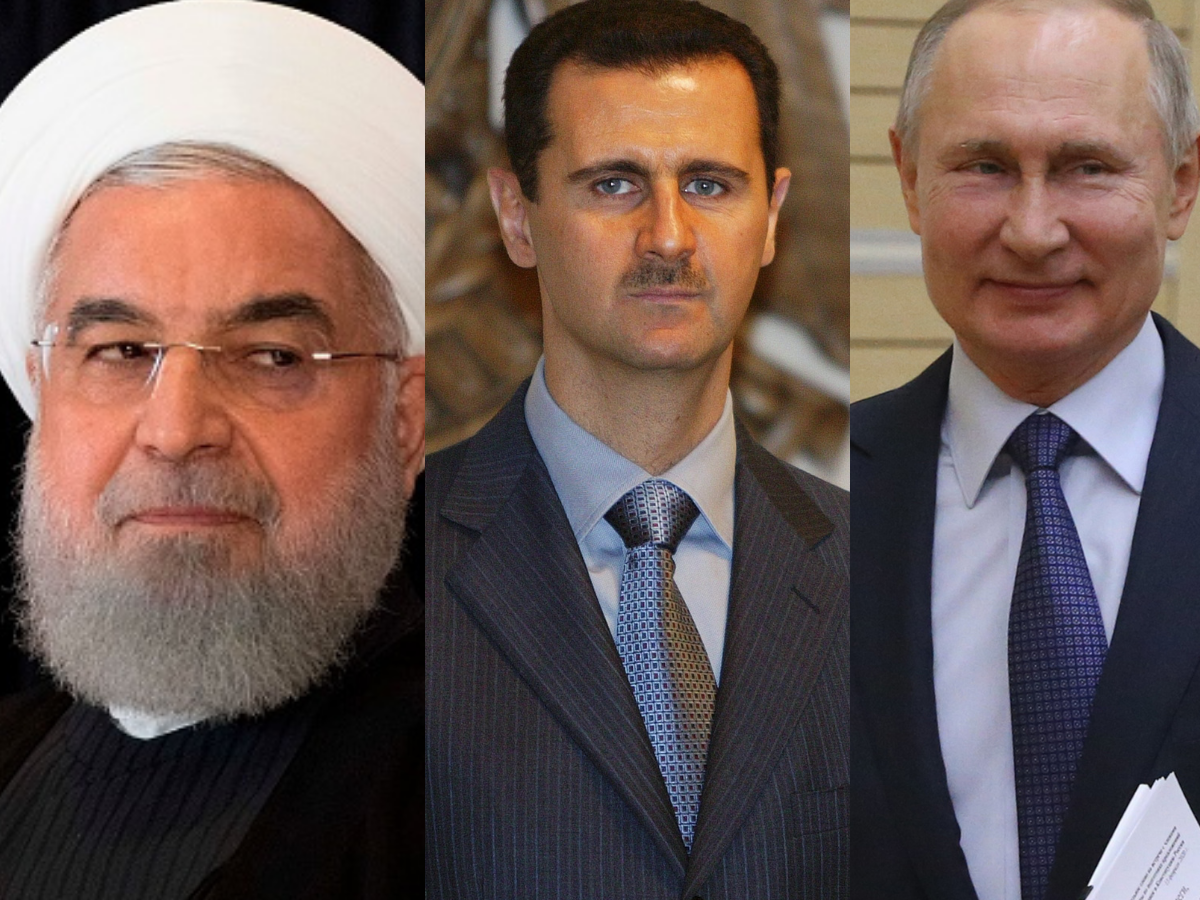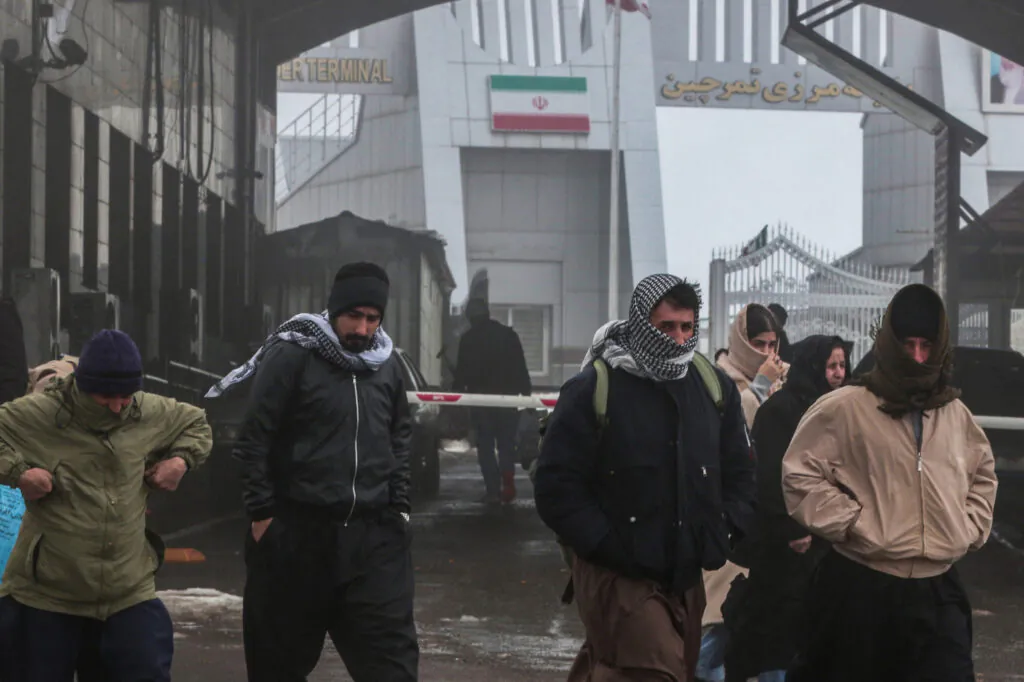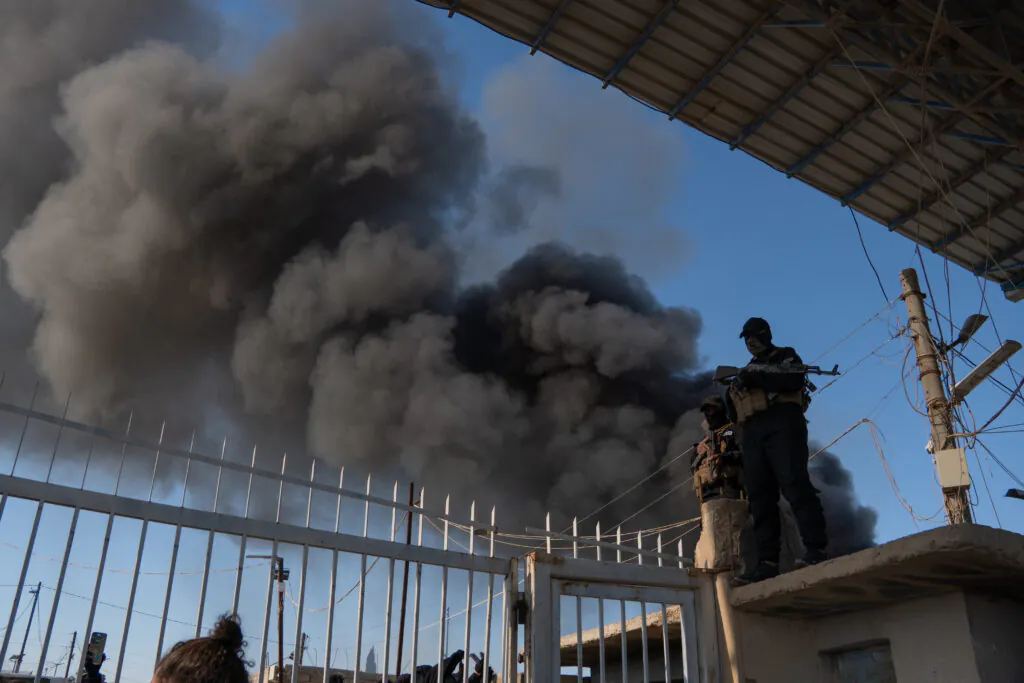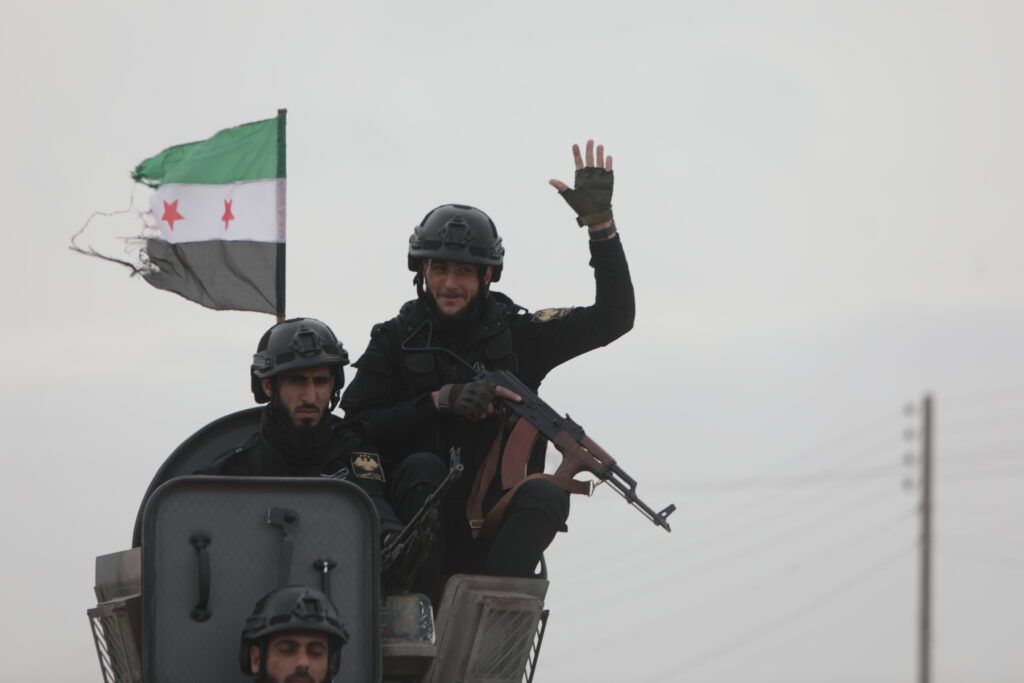
Al-Assad’s Strategy to Avoid Becoming a Puppet of Russia and Iran
Recent moves by Bashar al-Assad in the security sphere show the embattled Syrian president still has cards to play to preserve his power, despite having sacrificed much influence to Iran and Russia to secure his regime’s survival in the civil war.
Despite everything being said about the Syrian president’s weakness and inability to manage the country alone, he is still holding on to power despite the encroachment of his Russian and Iranian allies and, as his late father did, exploiting the regime’s secret weapon: the security services and their sectarian structure. This has proven to be the key to preserving the core of the regime and ensuring al-Assad’s survival.
Security Service Personnel Changes
In July 2019, al-Assad made changes in the upper echelons of his security forces that led many observers to ask whether he was losing control of his regime to his Russian and Iranian benefactors. The changes were considered significant because the affected branches were responsible for active military and intelligence operations, which both Russia and Iran are deeply involved in. Yet these changes showed how al-Assad could move his loyalists around, with Russian and Iranian approval, to strengthen his grip on the most essential elements of his regime. Unchecked Iranian and Russian influence in Syria leave al-Assad vulnerable to the will and decisions of his foreign allies. By replacing the highest echelons of security, he cements his own trusted inner circle.
Maj. Gen. Ali Mamlouk, an ethnic Circassian Sunni, became Deputy Head for Security Affairs, and Kifah Melhem, an Alawite, was appointed head of the Military Intelligence Division — the most important security position in Syria. Historically, the military intelligence apparatus has been led by Alawite officers because it is the largest and most powerful institution in Syria, supervising all sectors of the army and enjoying broad powers. The leadership of the historically powerful Air Force Intelligence was given to Maj. Gen. Ghassan Ismail, an Alawite from Tartus — the same city as Melhem — highlighting the need for the two complementary bodies to be governed by al-Assad loyalists. Hussam Luqa, a Sunni from the Aleppo countryside, was named head of State Security. Brig. Gen. Suhail al-Hassan, commander of the elite 25th Special Mission Forces Division (previously known as the “Tiger Forces”) and perhaps the most notorious of Russia’s friends in high-ranking military posts, was sidelined from decision-making circles.

Then earlier this year, al-Assad appointed Talal Makhlouf and Aamer Al Hamawi, both from the Alawite sect, to the positions of Special Military Office and Private Office, respectively. Separately, the posts are not largely significant in the Syrian security landscape, but together with the other four intelligence agencies they constitute a bulwark keeping al-Assad in power. The Political Security Directorate leadership was given to another Sunni figure, Nasser al-Ali (appointing Sunni figures to head Political Security and State Security is customary, dating back to Hafez al-Assad — another indication of how Bashar al-Assad is closely following the strategy his father used).
Observers and analysts spoke of Iranian and Russian influence in these security changes — analysis based on changes that took place in 2019. At the end of 2020, al-Assad began to make quiet and pivotal changes in the security services and postponed others. Al-Ali was dismissed, and the terms of Melhem, Ismail, and Luqa were extended for a period of one year.

Syrian and regional observers who saw a Russian and Iranian power play on al-Assad in July 2019 underestimated the degree to which it was actually working to the Syrian president’s advantage. The July 2019 changes at the top of the security services actually reflected al-Assad’s strategy following the end of active military operations: Reward the officers who pledged loyalty to his regime and who protected him against the popular uprising.
Al-Assad Preserves Control
2021 has thus far shown how al-Assad is implementing his strategy to remain in power, preserve his control over his regime, and reduce the ability of Russia and/or Iran to execute a coup against him. He has made quiet changes in the highest levels of his military and intelligence services without the media hype that took place with the July 2019 changes. A defected security figure who preferred not to be named suggested that al-Assad has shifted toward implementing new changes to security services that are beyond Russian and Iranian influence, specifically Military Intelligence, Air Force Intelligence, and some sectors of the army. The changes suggest al-Assad is playing the long game to ensure he remains in power and that he has a clear road map to deal with the security services as well as military positions to strengthen his loyalists.
Generally, it is unusual for the Syrian regime to announce security changes in the intelligence services unless the security services circles direct the leaks. This time, however, there has been no widespread leak regarding the changes, although the security services were anticipating a cleansing campaign at the beginning of 2021.
Military Intelligence Appointments
The next series of changes seem to be aimed at Military Intelligence, since it is the only body authorized to deal with Iranian-mobilized militias. Al-Assad likely does not want any military figure to remain for a long time in this leadership position to prevent him from establishing special relations with the Iranians that could make him more loyal to Tehran than to the regime. Moreover, at the end of 2018, al-Assad consolidated all the militias that were fighting on the ground under Military Intelligence and distanced the Air Force Intelligence Service from these militias. These moves made Military Intelligence the most powerful among all the regime’s security services.
Melhem, the head of the Military Intelligence Division, had his term extended for a year only, which means that he is slated to leave his position in 2022. The same applies to Ismail, the director of Air Force Intelligence. In addition, al-Ali, director of Political Intelligence, was dismissed, and Maj. Gen. Hussam Iskandar remained Director of State Security, which is responsible for local reconciliations and southern Syria.
Among these changes, which will soon be completed, is the appointment of Maj. Gen. Malik Habib to head the Badia branch of Military Intelligence, where he previously served as a brigadier general. This reflects the Syrian regime’s interest in reversing Islamic State gains in the Badiya region, where the gas fields could be within the organization’s reach. Deir ez-Zor is a strategic area where ISIS continues to have a presence.
Another reason for the focus is for the Assad regime to demonstrate that Syria is able to fight ISIS, too. The highest military rank for the Badia branch used to be at the level of brigadier general, but al-Assad has raised the rank to a major general. This could be a way for al-Assad to signal that his regime has a common goal with the new administration of U.S. President Joe Biden after the Pentagon announced in February that U.S. forces in Syria are focused on fighting ISIS, not on protecting oil fields.

Presidential Palace Appointments
The other personnel change in the regime security structure is the replacement of the director of the Military Office in the Presidential Palace, Maj. Gen. Wajih Al-Abdullah, with fellow Alawite and close al-Assad associate Maj. Gen. Talal Makhlouf. This position is considered one of the most sensitive positions and has a role in military decisions. Makhlouf, former commander of the Republican Guard, is maternally related to al-Assad and is close to him and his brother, military commander Maher al-Assad.
In the Private Office in the Presidential Palace, Amer al-Hamawi replaced fellow Sunni Muhammad Deeb Daaboul, who reportedly was removed from decision making for health reasons. With these changes, al-Assad maintained the same sectarian structure set down by his father, replacing Alawites with new Alawites and Sunnis with new Sunnis.
Significance of the Changes
The above changes explain the mentality of the Syrian regime and its plan for the branches of these security organizations in the rest of the region. The main security bureaus — Military Intelligence, Air Force Intelligence, State Security, and Political Security — and the highest-ranking officers in the Presidential Palace, especially the Private Office, form the solid foundation of the Assad regime. Long-running, coup-proofing logic has been applied to filling these positions, with the ironclad custom being that Military Intelligence and Air Force Intelligence are led by Alawites, since the Military Intelligence bureau fully supervises the army, thus allowing the regime to protect itself militarily.
Hafez al-Assad focused on Military Intelligence and Air Force Intelligence and did not pay as much attention to the State Security and Political Security branches. He made it customary to put these branches under the leadership of Sunnis because these branches are less powerful and because the Political Security Directorate is affiliated with the Ministry of Interior; Bashar al-Assad has followed this custom.
In contrast, some members of the regime who preferred not to be named attributed the upcoming security changes to al-Assad’s desire to get rid of all the officers involved in corruption and bribery to improve the country’s internal security conditions and send a message to the Syrian public and regime elements that he can limit the security services’ power. Though corruption in Syria is rampant on all levels, al-Assad differentiates between different types. Widespread domestic corruption is the least of al-Assad’s worries, and he has no desire to try to combat it. However, corruption in the security apparatuses and intelligence bureaus leaves al-Assad vulnerable to further Iranian and Russian infiltration through bribing officers and high-ranking personnel.
Curbing Russian Influence
Since the Russian military intervention in Syria began in September 2015, Russia has moved to restructure the Syrian Arab Army (SAA) so that it can reliably fight in major battles alongside Russian advisers. Russia also began to rearrange the structure of the SAA, adding divisions like the 5th Corps, which is now regarded to be directly under the authority of Russia. Russia also has had a strong role in the appointment of senior SAA leaders.
The appointment of Brig. Gen. Assef al-Dikr to lead Branch 293, the unit responsible for all promotions and matters related to the officer corps in the SAA, is a prominent example of Russia intervening in personnel decisions in the senior echelons of the SAA. However, al-Dikr, who studied in Russia for five years and is fluent in Russian, was quickly marginalized due to conflicts within the army and al-Assad’s desire to get rid of Russian oversight. If Russia’s goal was to weaken Assad, it made a mistake by focusing on the SAA and not paying attention to the security services and the military officers posted in the Presidential Palace.
Al-Assad has consistently tried to keep the security services away from the influence of the Russians and Iranians due to the essential role these services play in preserving the regime’s power. Russia no longer has sweeping influence over these sectors, especially since the Military Intelligence Division, which is now under al-Assad’s full control, oversees the military establishment. There is no public mention of any Russian influence within the intelligence establishment, especially in the regime’s four core security bureaus.
Al-Assad has recently limited Russian influence in military appointments in an attempt to minimize Russian leverage. For example, Maj. Gen. Zaid Saleh, head of the security committee in Idlib and one of the senior SAA officers close to the Russians, was dismissed on Jan. 5 this year. And in February, al-Assad appointed Alawite Gen. Haitham Barakat to be the chief of staff to Sunni Maj. Gen. Nizar Ahmed al-Khader, a Russian choice for commander of the 17th Division who had only been appointed in December 2020. This bold move is a direct challenge to Russia that gives al-Assad direct oversight over the 17th Division’s performance.

Even Brig. Gen. Suhail al-Hassan, leader of the “Tiger Forces” – which are supervised and advised by Russia – no longer has an important role in the SAA. This is due to the decline of major military operations and other SAA officers’ resentment of his influence, which the regime has exploited to weaken al-Hassan. The example of al-Hassan is important because it demonstrates how al-Assad can undermine Russian attempts to use the SAA to weaken his personal control over his regime.
Taking On Iran
Al-Assad has also worked to reduce the influence of Iran, especially as related to the Iranian use of militias to create parallel security structures that are not beholden to his regime. As a first step, al-Assad designated Military Intelligence as the branch that deals with the Iranian-backed militias, Lebanese Hezbollah, and the so-called “auxiliary forces,” previously known as the Shabiha, which are forces under Iranian supervision. This step is meant to organize the forces fighting on the ground through the Military Intelligence branch and reduce Iran’s control.
In September 2020, al-Assad moved to expel Arab fighters from the National Defense Forces, a group of Iran-controlled militias formed in 2013 that include fighters from Egypt, Tunisia, and other Arab countries. Perhaps seeing them as a threat with more loyalty to Iran than Syria, al-Assad ordered the Arab fighters to withdraw from battlefronts so they can be sent back home.
Interestingly, Maj. Gen. Bassam Merhej al-Hassan, the former commander of the National Defense Forces and a close associate of al-Assad who oversaw important portfolios such as chemical weapons in Syria, was removed from the SAA. Even though al-Assad chose al-Hassan to supervise the National Defense Forces and monitor Iran’s conduct in Syria, al-Assad considered him to be too close to Iran. Over the past year, Iranian officials have visited Syria more than ever because none of the Syrian personnel under Iranian sway remain in positions of influence.
Al-Hassan’s removal is further indication of the regime’s efforts to block Iran’s channels of influence in Syria and force all communication to go through the Military Intelligence division. At the same time, the regime is moving to dismantle all Syrian militias with some independence from the SAA by merging them with the 5th Corps, sending them to Libya, or assigning them to fight ISIS alongside the Iranian militia brigades in eastern Syria.
Although Assad’s dependency on Russia and Iran over the years has grown, the Syrian leader has been able to avoid becoming a puppet of Moscow and Tehran. The Syrian president has, in great part, accomplished this through an adroit strategy of limiting Russian and Iranian influence over his security forces by giving his intelligence services oversight over the military. By appointing a mix of loyal Alawite and (to a lesser extent) Sunni officers and commanders in critical positions, the Assad clan, over the decades, has been able to render its regime coup-proof. Therefore, it is important to keep an eye on these numerous security agencies as the regime struggles to deal with an economic meltdown.
The views expressed in this article are those of the author and not an official policy or position of the New Lines Institute.




